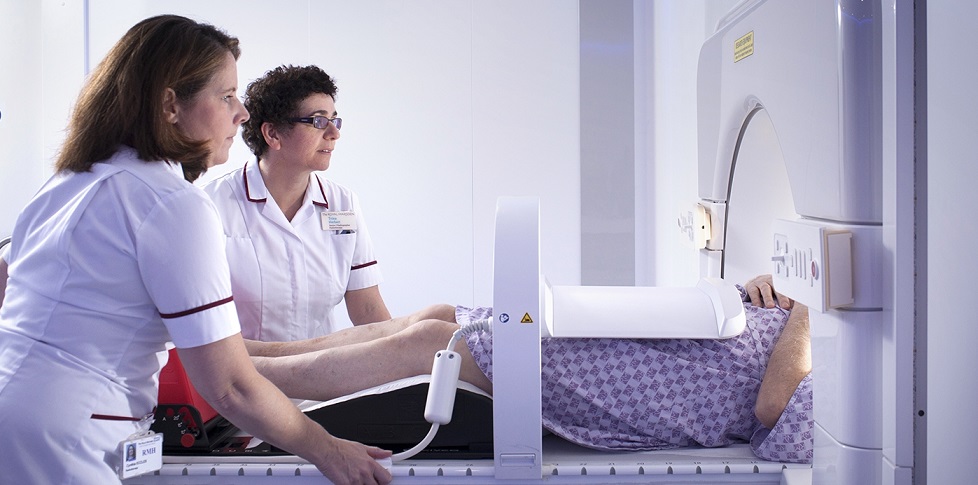
Written by Kathy May
CRF Manager, NIHR Royal Marsden
November 2020
Optimising Cancer Treatment surveillance and Ascertaining cause of Pneumonitis Using Artificial Intelligence (OCTAPUS-AI)
RADIOTHERAPY FOR LUNG CANCER PATIENTS
In response to the COVID-19 pandemic, the infrastructure expertise of the NIHR Royal Marsden CRF has helped support research activity of emerging importance to the care of lung cancer patients, who are at increased risk of developing COVID-19.
For lung cancer, one of the most common cancers in UK and worldwide, CT is the most widely used imaging modality for radiotherapy planning and treatment surveillance. Both radiotherapy and a number of drugs used in systemic anti-cancer therapy are associated with lung toxicity, the appearance of which can be difficult to distinguish on CT images from infective pneumonia.
LUNG CANCER & COVID-19
During the pandemic, it is therefore increasingly important to rapidly and accurately distinguish between patients with infective disease and those with therapy-associated toxicity or early recurrence.
COVID-19 induced cases should not be treated with immunosuppressive cancer therapies, while misdiagnosis of treatment toxicity could prohibit further therapy which has the potential to significantly alter cancer outcome

OCTAPUS-AI CLINIAL TRIAL
Radiomics is the use of data-characterisation algorithms to extract a large number of features from radiographic images. These have the potential to uncover disease characteristics that cannot be distinguished by the naked eye.
The OCTAPUS-AI study is investigating if artificial intelligence (AI)/radiomic analysis of CT and chest x-ray imaging could be used to help distinguish causes of lung changes.
The use of non-invasive biomarkers could have a positive impact on resources and patient treatment protocols, providing closer surveillance for those at high risk of recurrence; remote monitoring for those at low risk and enable adaptation of follow-up protocols in accordance with patient-safety measures.
To learn more about NIHR Royal Marsden CRF expertise, click here.




